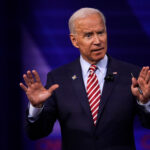Photo © 2024 Thee Arizona times
“Not Like Us” delivers scathing lyrics and club-ready beats
On May 4th, 2024, Kendrick Lamar reignited his longstanding feud with Canadian rapper Drake by dropping a fiery diss track titled “Not Like Us.” Posted on his official YouTube channel, the track marks the fourth installment in their musical war of words, escalating the tension with a barrage of personal attacks.
Doubling Down: Kendrick Goes In
“Not Like Us” wastes no time in establishing its purpose. Kendrick opens with a comically exaggerated Southern accent, whispering “Pssst: I see dead people,” instantly grabbing the listener’s attention. He then dives headfirst into a series of scathing attacks, referencing Drake’s past controversies, including comments about dating younger women. This is just the opening salvo. Kendrick doesn’t hold back, mocking the title of Drake’s 2021 album, “Certified Lover Boy,” with a scathing wordplay: “Certified Lover Boy? Certified pedophile.” The lyrics throughout the track are laced with brutal honesty and clever wordplay, showcasing Kendrick’s signature lyrical mastery. Notably, a section references Atlanta, a city with connections to Drake, and takes aim at his hit song “God’s Plan,” further establishing dominance in this lyrical battle.
A Change of Pace: Club Vibes and Escalating Tensions
Unlike Kendrick’s previous diss tracks, known for their dark and moody atmosphere, “Not Like Us” boasts a surprisingly club-friendly vibe. The track features a bouncy beat produced by Mustard, a renowned hip-hop producer, adding a layer of unexpected energy to the verbal assault. This unexpected sonic choice throws shade at Drake’s own music style, often characterized by smoother, more pop-infused production. However, the club-ready beat doesn’t diminish the intensity of the lyrics. The juxtaposition between the upbeat music and the scathing wordplay creates a sense of unease, mirroring the escalating tension between the two rappers.
The Feud Takes Center Stage: Fans React, Industry Buzzes
The release of “Not Like Us” sent shockwaves through the hip-hop community. Social media platforms like Twitter and Instagram exploded with reactions, memes, and heated debates. Fans, divided into Team Kendrick and Team Drake, passionately defended their favorite artist, dissecting the lyrics for hidden meanings and references. Hashtags like #KendrickVsDrake and #NotLikeUsChallenge trended worldwide, showcasing the cultural impact of the feud.
Music critics and journalists also weighed in, offering their analyses. Some praised Kendrick’s lyrical prowess and boldness, commending his willingness to take aim at Drake’s reputation. Others questioned the necessity of diss tracks in the industry, sparking discussions about the role of competition and artistry in hip-hop. Articles and think pieces delved into the historical context of rap feuds, comparing this rivalry to past battles between iconic rappers.
Radio stations capitalized on the buzz by hosting call-in shows, allowing fans to voice their opinions and fueling the fire of the feud. DJs played both Kendrick’s track and Drake’s previous diss tracks, creating a playlist dedicated to their lyrical warfare. Some stations even organized listener polls to determine who was “winning” the feud, further amplifying the competitive spirit.
Beyond Music: A Cultural Phenomenon
The impact of the Kendrick Lamar-Drake feud extends beyond music. Fellow artists and rappers were drawn into the fray, with some publicly supporting Kendrick and others remaining neutral. A few rappers even dropped their own freestyles responding to the diss track, adding fuel to the fire and showcasing the interconnected nature of the hip-hop scene. During concerts and live performances, fans chanted lines from “Not Like Us,” creating an electric atmosphere charged with anticipation for Drake’s inevitable response.
Streaming services saw a significant surge in both Kendrick Lamar and Drake’s music. Fans revisited their entire discographies, analyzing past lyrics for potential clues about the feud’s origins. This surge in interest translated to increased album sales and downloads, demonstrating the rappers’ continued influence and the commercial potential of their rivalry.
While the feud has intensified the divide between Team Kendrick and Team Drake, it has also brought the hip-hop community together in a shared experience. The back-and-forth exchange of lyrical jabs has sparked discussions about artistry, competition, and the ever-evolving landscape of hip-hop. However, the heated arguments and occasional toxicity among some fans highlight the potential downsides of such public feuds.
The Show Goes On: A Lyrical Showdown for the Ages
The release of “Not Like Us” marks a significant escalation in the ongoing feud between Kendrick Lamar and Drake. This war of words has transcended music, becoming a cultural event that has captivated fans and industry professionals
What’s Next? The Anticipation Builds
With “Not Like Us” dominating the airwaves and social media, all eyes are now on Drake. Will he respond with a diss track of his own, or will he choose a different strategy? Industry insiders speculate that Drake might take some time to craft a meticulously layered response, aiming to surpass Kendrick’s lyrical onslaught. Perhaps he’ll address the personal attacks directly or choose a more subtle approach, laced with hidden references and metaphors.
One thing is certain: the wait for Drake’s response will be filled with anticipation. Fans will dissect every social media post and public appearance, searching for clues about his next move. This period of heightened tension will only serve to amplify the impact of Drake’s eventual response, ensuring that this feud remains a major talking point in the hip-hop world. Only time will tell how this lyrical showdown will influence the future of hip-hop, but one thing remains undeniable: the world is watching, eagerly awaiting the next chapter in this captivating feud.





